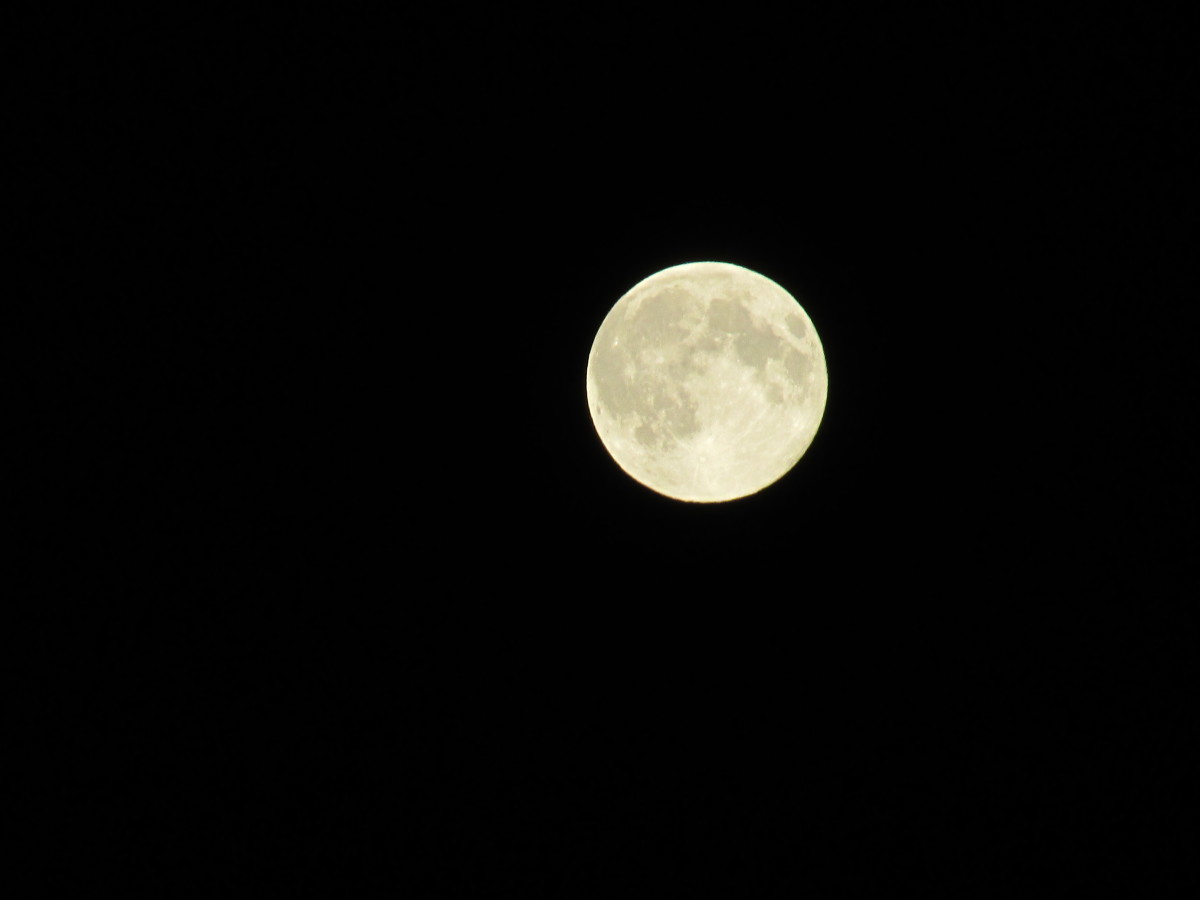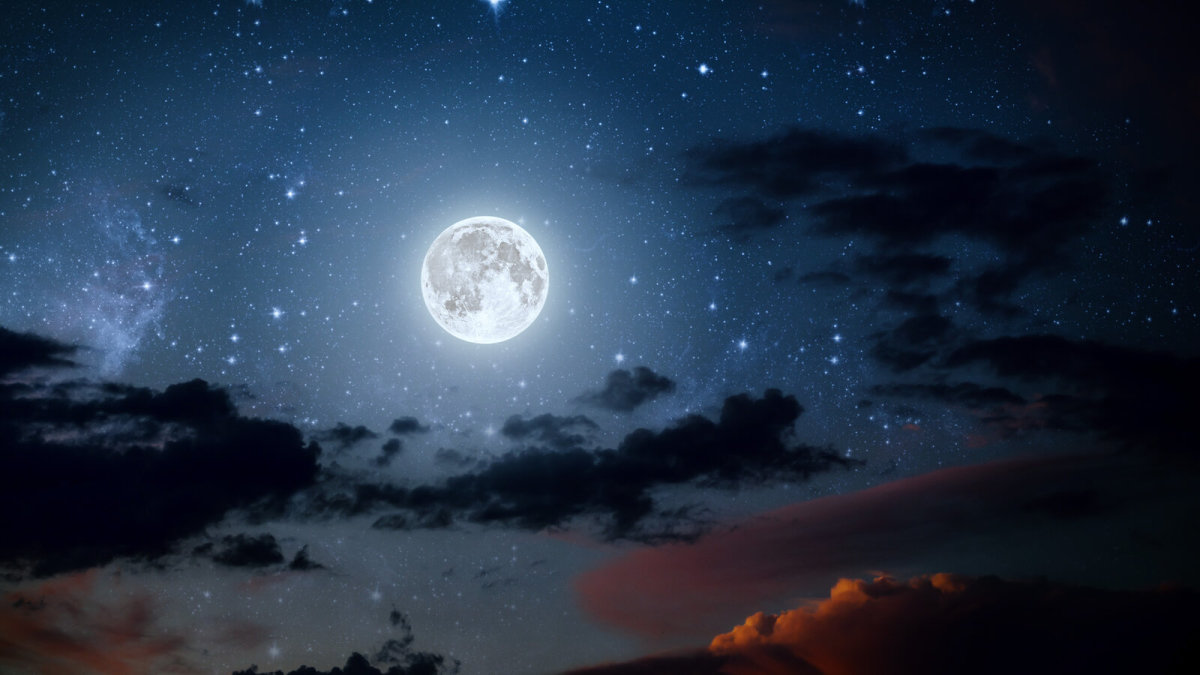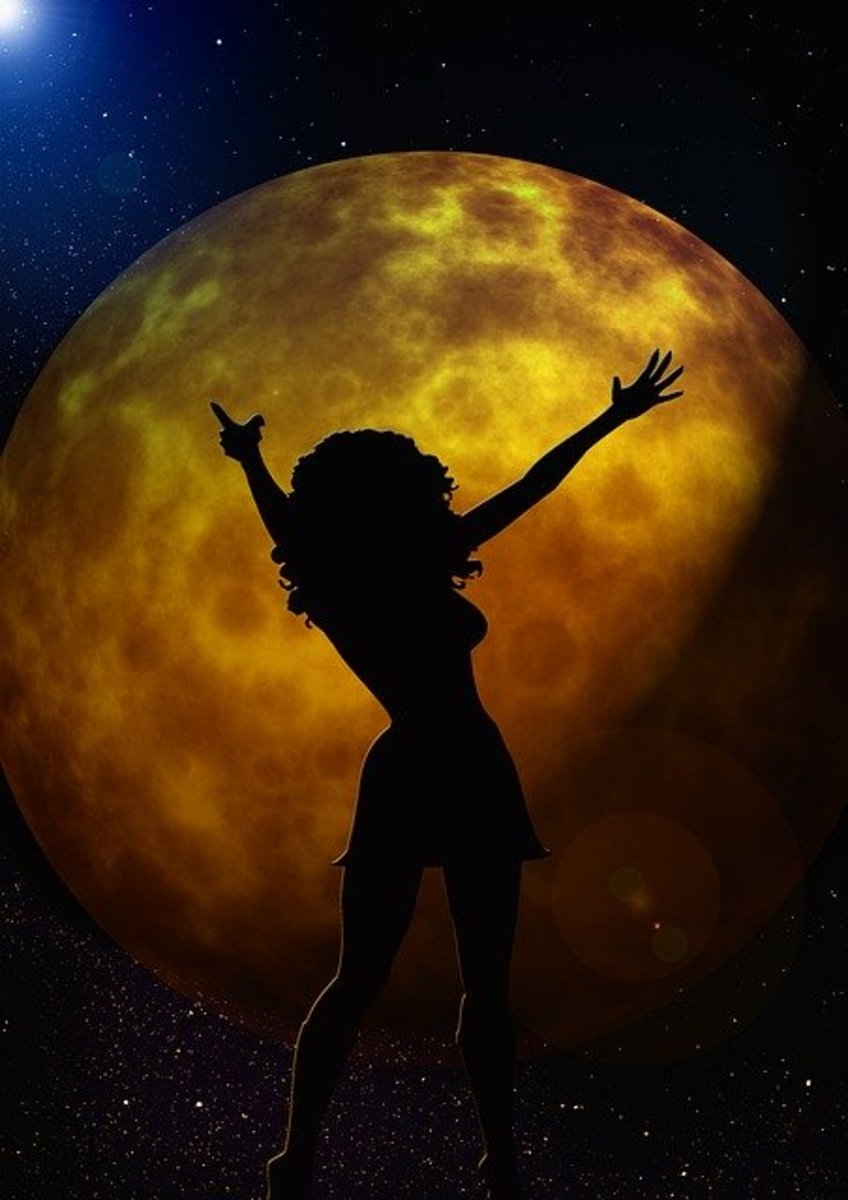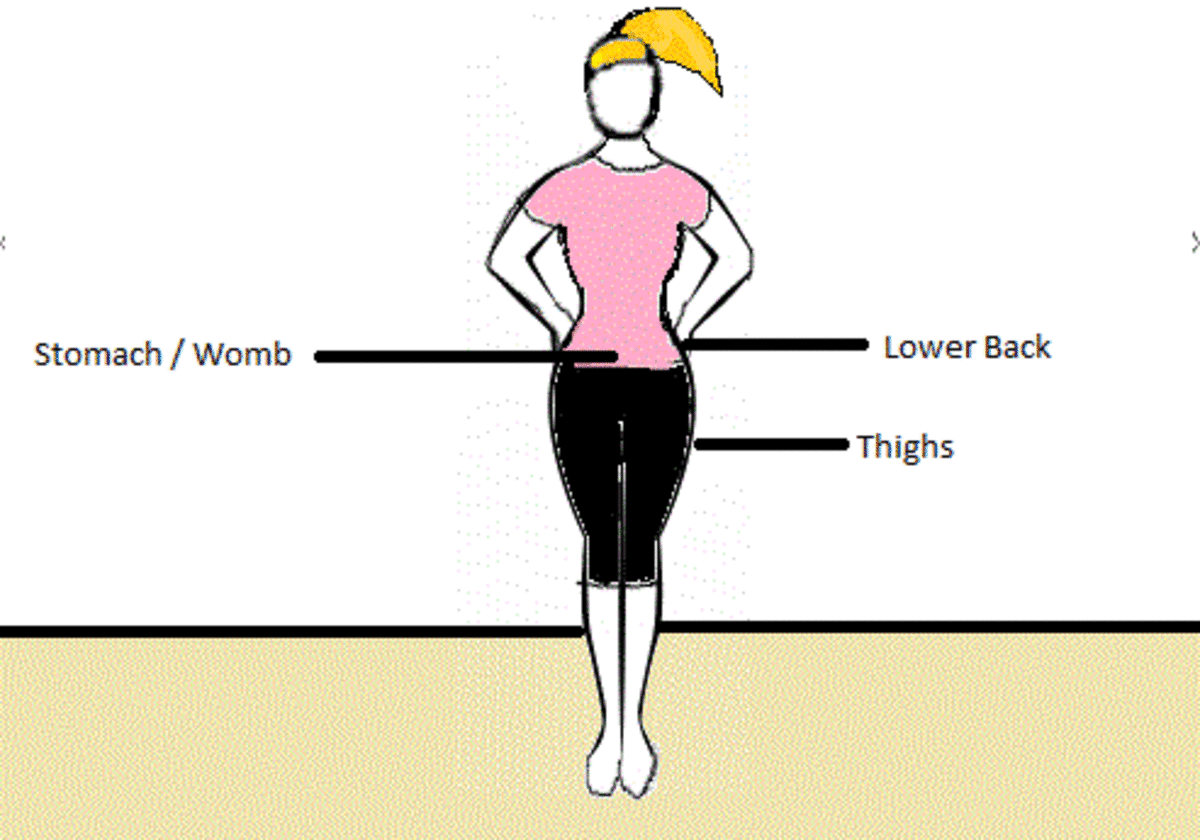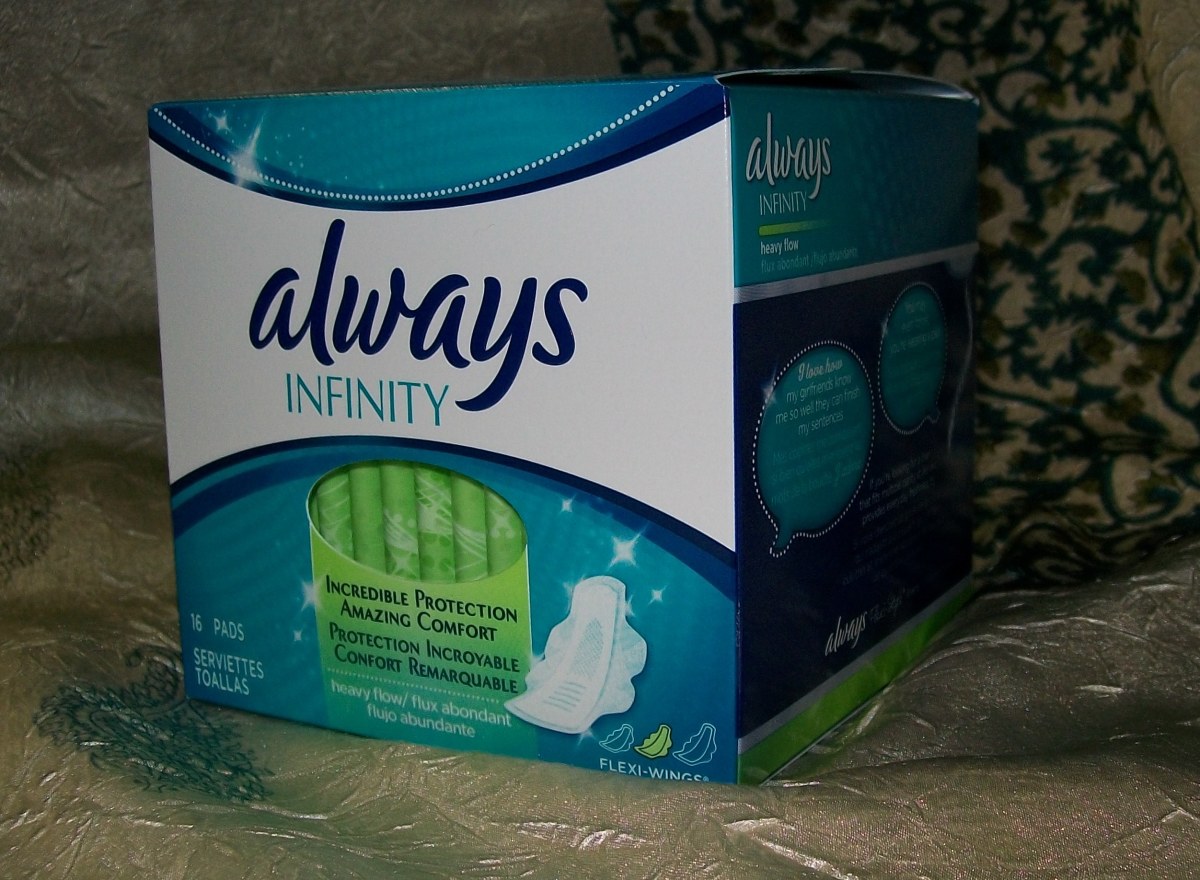Lunar Cycles and Women's Menstruation
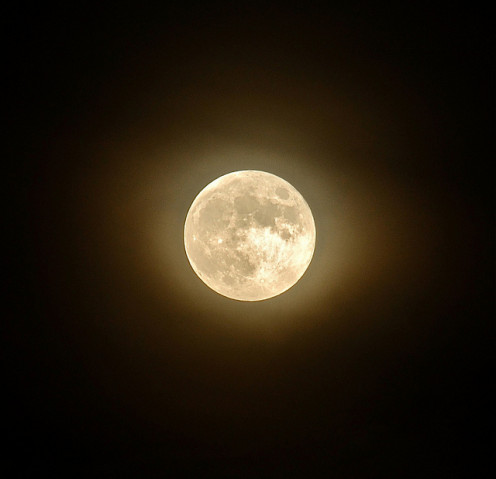
Does the Moon Affect Women's Menstrual Cycles?
Many people have heard that women's menstrual cycles are affected by the lunar cycle. Is this true? The idea has long been held that before modern times, women ovulated with the full moon and menstruated with the new moon. In fact, the very words "menstruation" and "menses" derive from the ancient Greek word "mene" (μήνη), meaning moon. Some argue this is because the two cycles once had a direct correlation, while others argue that the connection was only made because the cycles last approximately the same amount of time (but that doesn't mean that all women menstruated with the new moon).
Nevertheless, the symbolism remains very strong. Most cultures and religions associate the moon with feminine goddesses or qualities. The waxing and waning of the moon's light is viewed as mirroring the waxing and waning of women's monthly fertility. Traditionally, both the night and women were considered to be full of spirituality, secrets, and mysteries.
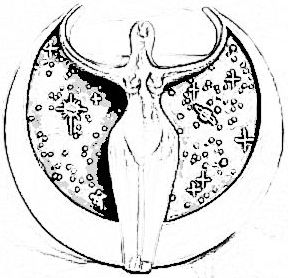
Lunacy and Full Moon Myths
The full moon is, of course, also associated with all sorts of crazy behavior and shape-shifting. The word "lunatic" has the same root as "lunar", so once again the cultural association is reflected in our language. Interestingly, the word "estrogen" is Greek for "makes crazy", due to the fact that it makes women "mad with desire". Estrogen peaks right before ovulation, and it is now known that men can sense (and are attracted to) these pheromones in women. If a majority of women ovulated at or near the full moon, that's a lot of pheromones going around to drive men and women crazy! Of course such a situation has never been proven, but it's an entertaining thought on the full moon myths.
Moon Facts
- Cycle: 29.5 days
- The moon rotates at 10 mph (the Earth rotates at 1000 mph!)
- From Earth we always see the same side of the moon
- The moon rises 50 minutes later each day
- Sometimes you can see the dark side of the moon because of "Earthshine": light that bounces off the earth towards the moon (and then back to our eyes)
W. Cutler's 1980 Study
Numerous studies have been made on the subject of lunar influences, and few have conclusively found a correlation with menstruation. Many people cite a study done by Winnifred Cutler, 1980, who claimed that 40% of her study group menstruated within a week of the full moon. Her study has never been reproduced, however, and others are quick to point out the flaws: The study therefore implies that 60%, a majority, did not menstruate during a certain phase of the moon. The study only involved about 300 women, and these women were chosen specifically because they already had 29 day cycles. Obviously this lowers the percent of correlation to a very small number within the population, when women with shorter or longer cycles are taken into account. Interestingly, Cutler's claims of correlation were the opposite of the traditionally held view: that women menstruate with the new moon.
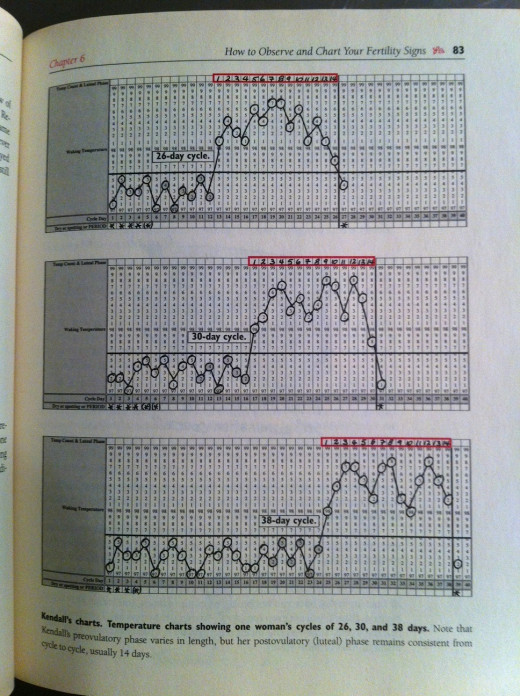
Variability in Cycles
Cutler's study leads to another problem that many people like to point out. The moon's cycle is always 29.5 days, but women's cycles vary considerably. These variations are both from woman to woman, and from cycle to cycle. The question is why? Some claim this is natural and therefore there is no relationship to the moon's cycle. To some degree, it's true that variation is natural. But others claim the variations seen today are extreme and unnatural, caused by our poor diets, drugs, high stress levels, and the effects of light pollution at night. Those who believe this, claim that women can regain a relationship with the moon by adopting a healthy diet, sleeping in the dark, and reconnecting with nature.

How to Track Your Moon Cycle Using a Moon Dial Mandala
Lunaception and Night Lighting
So why does sleeping in the dark matter? Melatonin is a hormone made by your body that promotes sleepiness and lowers your body temperature. It is also an antioxidant that protects the DNA in your cells. The production of melatonin is directly associated with the presence of light. When light enters the retina of the eye, melatonin production is reduced or inhibited. Production resumes with darkness. This hormone plays a very important role in our health, and darkness is required in order to properly produce the needed levels. Without sufficient darkness, our bodies will become over-stressed, sleep-deprived, and eventually suboptimal health will result.
Many believe that the moon's light played a role in females' reproductive system through melatonin, since both are part of the endocrine system. The theory is that the increasing light from a full moon lowered melatonin production, which in turn somehow triggered ovulation. The returning darkness of a new moon corresponded with menstruation and the beginnings of a new cycle with full melatonin production. Now, however, the changing light of the moon is negligible in women's lives, as we are surrounded by computer and TV screens, indoor lighting, street lamps, and light pollution. Darkness is gone from our lives, explaining (some say) why women's cycles now vary greatly and no longer coincide with the lunar cycle.
Lunaception is a technique (and a book) by Louise Lacey on how to enhance one's cycles and fertility by sleeping in complete darkness every night, except for three nights where a dim light is turned on (mimicking the full moon). The Couple to Couple League heard of Lacey in the 1970s and did their own study as well. Both claim that with this technique women's cycles became healthier and more regular. Katie Singer includes a section on Lunaception in her book The Garden of Fertility.
Read More about Women's Menstrual Cycles
The Verdict
The question of lunar influences on menstrual cycles has not been conclusively solved and remains controversial. In the world of science, far more studies have found no correlation than studies that do. Yet there remain a steady following of people who maintain that there is a relationship, whether physical or spiritual (usually both), between women's cycles and the moon's cycles.
The real decision is how far you want to take this relationship. Some people, as with the "Lunar Phase Method", go so far as to claim that the lunar phase a woman was born under will be the lunar phase she becomes pregnant in, regardless of her menstrual phase! This idea downright ignores the biological life span of sperm and eggs, and is highly suspicious. Others, like Lunaception, simply claim that the regular cycle of the moon can promote regular cycles in women, helpful especially to those with too short, too long, or anovulatory cycles. Some women appreciate feeling a connection to nature and find meaning in the lunar symbolism of waxing, waning, and feminine mysteries.
It certainly would not hurt a woman to attempt Lunaception, as the relationship between darkness and melatonin production is well documented and understood. It is very likely that the change would be beneficial to over-all health, possibly including her reproductive system. I would never recommend a women attempt to achieve or prevent pregnancy based solely on the moon's phase, however. As we've seen, correlation is either non-existent or scarce in the modern world, and tracking your own personal fertility symptoms through Fertility Awareness would be a better and more reliable method. Tracking the moon can be an interesting addition to your awareness of your fertility, but should never be your sole source of information.
Do you think there is a relationship between the moon and women's menstruation? Do your cycles coincide with the lunar cycle? Leave a comment and let me know!
©StandingJaguar


